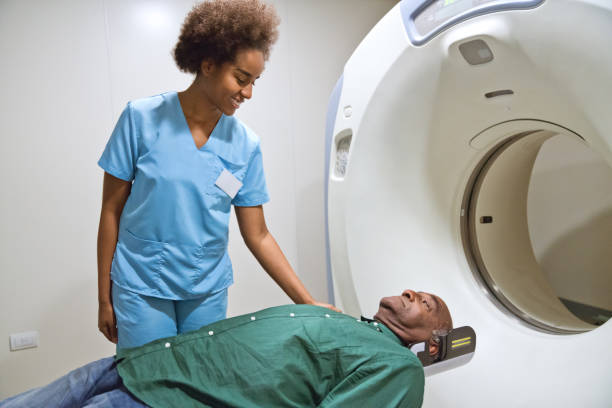(ThyBlackMan.com) Radiation oncology is a pivotal branch of medical science that zeroes in on treating various forms of cancer using high-energy radiation. As new technologies emerge and research progresses, treatment methods transform. For health professionals dedicated to this field, remaining informed is imperative. It’s about delivering care that’s both state-of-the-art and grounded in the latest evidence. An up-to-date knowledge base translates directly to well-being and improved patient outcomes.
Attending Professional Conferences and Workshops
Conferences highlight the most recent developments in radiation oncology. At these events, luminaries and experts converge to discuss, debate, and disseminate new information. Workshops, often held alongside these conferences, offer practical, hands-on experiences. For a practitioner, these are not mere events but crucial learning opportunities. They present a chance to network, learn from peers, and even discover collaborative opportunities. These events ensure a holistic overview of what’s new and what’s next in radiation oncology.

Regular Engagement with Professional Associations
Membership in professional associations is like holding a golden ticket to a treasure trove of information. These bodies are specifically designed to shepherd professionals through the ever-evolving landscape of radiation oncology. Not only do they offer a steady stream of updates and newsletters, but they also provide guidelines, standards, and best practices. Many of these associations also curate specialised radiation oncology resources for healthcare providers, ensuring members can access the most comprehensive and updated materials.
Subscribing to Peer-Reviewed Journals
Journals are the heartbeat of the medical world. They capture, chronicle, and disseminate the latest research and advancements. For a professional in radiation oncology, they act as both compass and map, guiding them through new terrains of knowledge. Each article and study has undergone a meticulous review by peers, ensuring that what one reads is both trustworthy and groundbreaking. As they flip through these pages, professionals converse with the global community of researchers, absorb their findings, and consider the implications for their practice.
Participating in Online Forums and Groups
Digital platforms have opened up vast new horizons for learning and interaction. Online forums and groups tailored for radiation oncology act as virtual meeting spaces. Here, professionals from diverse geographical locations and backgrounds come together. They share case studies, discuss the latest research, seek opinions, and more. These digital arenas echo the collective wisdom of countless professionals. These forums are invaluable for someone keen on staying updated. They provide a real-time pulse check on the global state of radiation oncology.
Continuous Education Programs
The learning journey never truly ends, especially in a field as dynamic as radiation oncology. Recognising this, many institutions have crafted continuous education programs. These are meticulously designed to cover various topics, from foundational concepts to the latest innovations. Enrolling in these programs is like embarking on a guided tour led by experts and packed with insights. As health professionals navigate these modules, they enrich their understanding and earn the recognition that accentuates their professional standing. At this london oncology clinic, learning is also facilitated in their work life through collaboration with colleagues and research into improving healthcare techniques.
Embracing Technological Advancements
The tools of the trade in radiation oncology are continually being refined and upgraded. As new machines, software, and techniques are introduced, professionals must become proficient in them. Mastery of these tools isn’t just about skill acquisition; it’s about ensuring that patients receive the best care possible. Regular training sessions, whether organised by equipment manufacturers or third-party bodies, ensure that professionals remain adept and agile. These sessions act as bridges, connecting professionals with the latest in technology and technique.
Conclusion
The domain of radiation oncology is vast and ever-shifting. Navigating this landscape requires dedication, curiosity, and continuous learning for health professionals. They can remain at the cutting edge by leveraging a blend of traditional avenues like conferences and modern platforms like online forums. Staying updated isn’t just a professional requirement; it’s a commitment to excellence, ensuring that every patient receives current and compassionate care.
Staff Writer; Paul J. Ford

















Leave a Reply